In this article:
The kidneys play crucial roles in the body’s functioning. Therefore, it is essential to consume a healthy diet and implement lifestyle modifications in ways that promote kidney health.
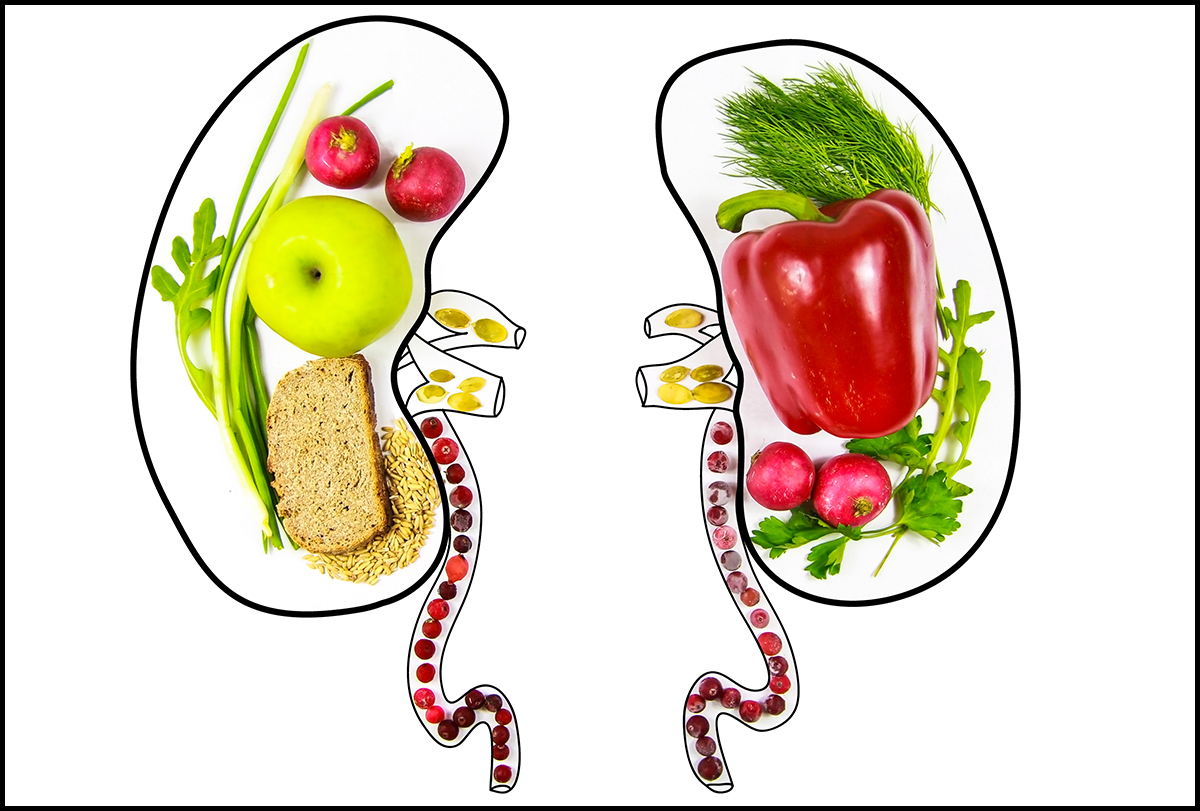
Measures such as weight management and low salt and sugar intake should be taken. These help prevent hypertension and diabetes, which are the two leading causes of kidney problems.
Role of Kidneys in the Body
Healthy eating is important for healthy kidneys so they can efficiently perform their functions:
- Remove waste from the body through urination.
- Filter the blood and maintain adequate plasma to keep the blood flowing to the vital organs.
- Regulate the electrolyte balance and the acid-base balance to maintain pH levels.
- Produce hormones that aid in red blood cell synthesis, help to control blood pressure, and regulate blood calcium and glucose levels.
The kidneys are essential in total body homeostasis. (1)
What Is a Renal Diet?
A renal diet is a therapeutic diet for people with disorders of the kidney, including acute kidney injury (AKI), chronic kidney disease (CKD), end-stage renal disease (ESRD), nephrotic syndrome, and kidney stones, to name a few.
The renal diet is low in sodium, potassium, and phosphorus and typically high in protein, depending on the disease state and treatment plan. (2)(3)
When the kidneys begin to lose function, their ability to remove these nutrients from the blood is reduced. Therefore, the level of these nutrients needs to be controlled through the diet to reduce the load on the kidneys. Therefore, it is important that patients with kidney disease consult a registered dietitian to meet their individualized needs for each nutrient.
Dietary Changes for Different Stages of Kidney Failure
It is of the highest importance that people with diagnosed kidney disease follow the diet recommendations of their nephrologist and registered dietitian.
Again, as the kidneys are no longer able to properly filter the blood, maintain pH, and properly excrete waste, dietary changes are necessary to preserve the remaining function.
Different kidney problems have different dietary requirements through the stages of disease progression.
1. AKI
For mild AKI without a need for dialysis
For severe AKI requiring dialysis
- Calories – 35–50 kcal/kg
- Protein – 1.0–2.0 g/kg (4)
2. Chronic kidney disease
Stages 1–4
End-stage
For those on peritoneal dialysis, potassium is liberalized to 3-4 g/day and protein needs increase to 1.3 g/kg body weight. (4)
Foods That Support Kidney Health
The following foods help your kidneys perform better and help in reducing or repairing kidney damage:
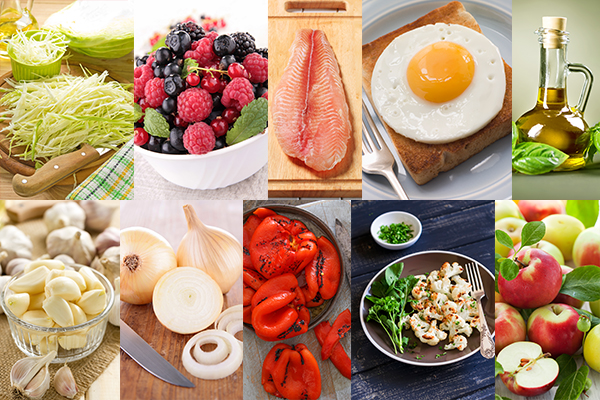
- Cabbage helps your kidneys fare better. It is rich in vitamins and phytochemicals and also contains fiber that helps in maintaining the digestive system and prevents constipation. (9)
- Berries are nutritionally robust. Berries are rich in potassium, phosphorus, phytochemicals, and antioxidants that have anti-cancer and anti-inflammatory properties that are great for the digestive system. (10)
- Fish is the kind of protein that your kidneys need. Along with high protein content, fishes such as the Chilhuil sea catfish, broomtail grouper, and southern flounder have a low potassium content. (11)
- Trust egg whites for premium-quality protein. They supply the body with all the essential amino acids and are recommended for patients with CDK. (12)
- Olive oil is the right kind of grease. Its low cholesterol and saturated fat content help maintain kidney health.
- Garlic promotes kidney health. Because patients with kidney disease need to regulate their sodium levels, garlic can be used to replace salt as a flavor enhancer. Moreover, it helps manage hypertension, which is highly prevalent in patients with CKD. (13)
- Make the best of onion’s versatility. Onions are low in potassium and are hence recommended for people suffering from kidney disease. (14)
- Red bell peppers have all the makings of a kidney-friendly food. They are low in potassium and high in vitamins A, B6, and C, fiber, lycopene, and folic acid.
- Eat cauliflower to safeguard your kidneys. The high folate, fiber, and vitamin C content of cauliflower help remove toxins from the body.
- Apples prevent kidney damage. The low potassium content of apples prevents an increase of potassium in the blood.
Must-Have Foods for Kidney Patients

Maintaining a healthy, balanced diet is important. Those suffering from kidney disease should include a variety of fruits, vegetables, and whole grains within the recommended range for sodium, potassium, and phosphorous intake.
High biological value (HBV) proteins, which can be readily absorbed by the body, are also necessary for those who have increased protein needs. Sources of HBV include meat, fish, eggs, soy, and dairy. However, dairy has to be limited to those with renal dysfunction as it is a good source of potassium and phosphorous. (15)
Moreover, a diagnosis of kidney disease does not mean that the affected individual has to consume meat. While meat is the best source of HBV protein, those who follow a vegetarian diet can meet their protein needs through plant sources.
Your registered dietitian can provide you with resources to find out the content of these nutrients in different foods.
Foods to Avoid When Suffering From Kidney Problems
Processed foods contain high amounts of sodium and phosphorous as these two nutrients are used in preservation. Phosphorous, in the form of an additive, is absorbed at the highest rate when compared to meat and plant sources. (16)
To avoid these foods, purchase foods in their whole form. The less processing, the less additives in the food item.
Foods to Avoid When Suffering From Kidney Stones
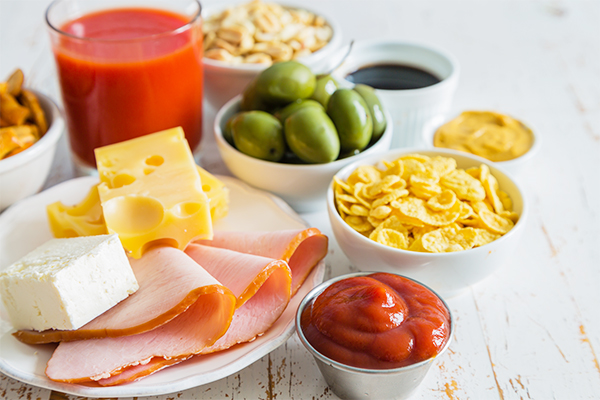
Generally, people with kidney stones need to increase their liquid intake to increase fluid volume, and their provider may also request that they reduce their urinary calcium, sodium, and oxalate levels.
- To reduce sodium in the diet, avoid processed and canned foods, cured meats that are high in salt, and high-sodium condiments.
- To reduce urinary calcium levels, lower the intake of high-acid foods such as meat, poultry, fish, and cheese.
- To reduce urinary oxalate levels, limit high-oxalate foods such as beets, rhubarb, spinach, potato chips, French fries, nuts, and nut butter.
- Other recommendations include reducing foods that produce high urinary uric acid levels and including more foods that increase urinary citrate and magnesium levels.
Keep in mind that these are guidelines, and recommendations may look very different depending on the individual and their needs.
Recommended Fluid Intake for Kidney Patients
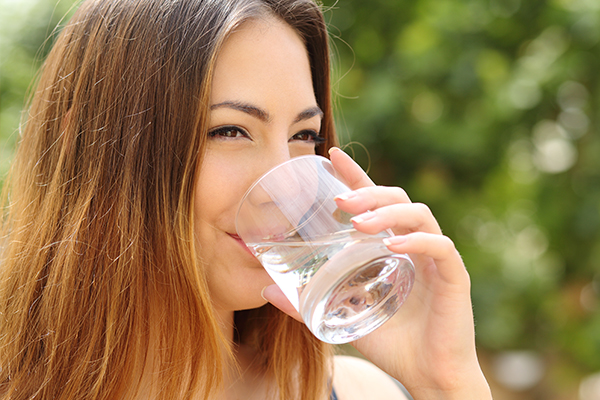
Fluid consumption will depend on the stage of kidney disease and if dialysis is required.
AKI may require a fluid restriction depending on urine output, dehydration, etc. Those on dialysis who no longer produce urine also require a restriction, typically 1–1.5 liters per day. (17)
Your medical team will provide recommendations on how much fluid you should be consuming for the day.
Is Consuming Apple Cider Vinegar Beneficial for the Kidney?
No, it is not. There is no current research to support that apple cider vinegar is beneficial for kidney health.
Recommended Vitamins for Kidney Patients
Renal patients require additional water-soluble vitamins, which include the B vitamins and vitamin C. Your doctor will prescribe you a renal multivitamin.
Renal Diet for People With Both Diabetes and Kidney Disease
Many people suffer from both diabetes and kidney disease since uncontrolled diabetes can often cause kidney damage.
A renal diet must be accompanied by a carbohydrate consistent diet, which means carbohydrates should be about the same at each meal. A standard recommendation for carbohydrates is 45 g per meal for women and 60 g per meal for men, with a snack of 15 g between meals or at bedtime. (18)
Complications Associated With Untreated Kidney Disease
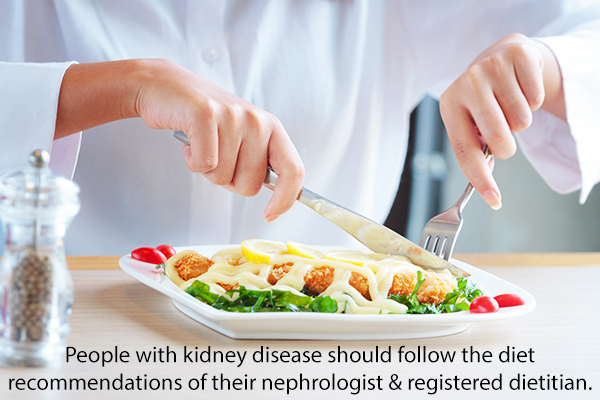
If kidney patients do not follow a doctor recommended renal diet, there will be a build-up of the following minerals which can induce serious complications:
Potassium is a mineral that helps with muscle and nerve function. When serum potassium (amount of potassium in your blood) is too low or too high, it can cause cardiac distress and arrhythmias.
Sodium is needed to maintain pH and fluid balance and it supports muscle and nerve activity. It exists in high amounts mostly in processed foods. High serum sodium levels can raise blood pressure.
Phosphorous is a mineral that helps to keep bones healthy and aids in the blood vessel and muscle function. High levels of serum phosphorous can cause itchy skin, weak and brittle bones, and soft tissue calcification.
Final Word
Your kidney health is largely influenced by what you consume. High consumption of acid-producing foods can cause severe damage to your health through metabolic acidosis. Include alkaline-producing foods such as fruits and vegetables to help support kidney health and functioning.
- Was this article helpful?
- YES, THANKS!NOT REALLY


